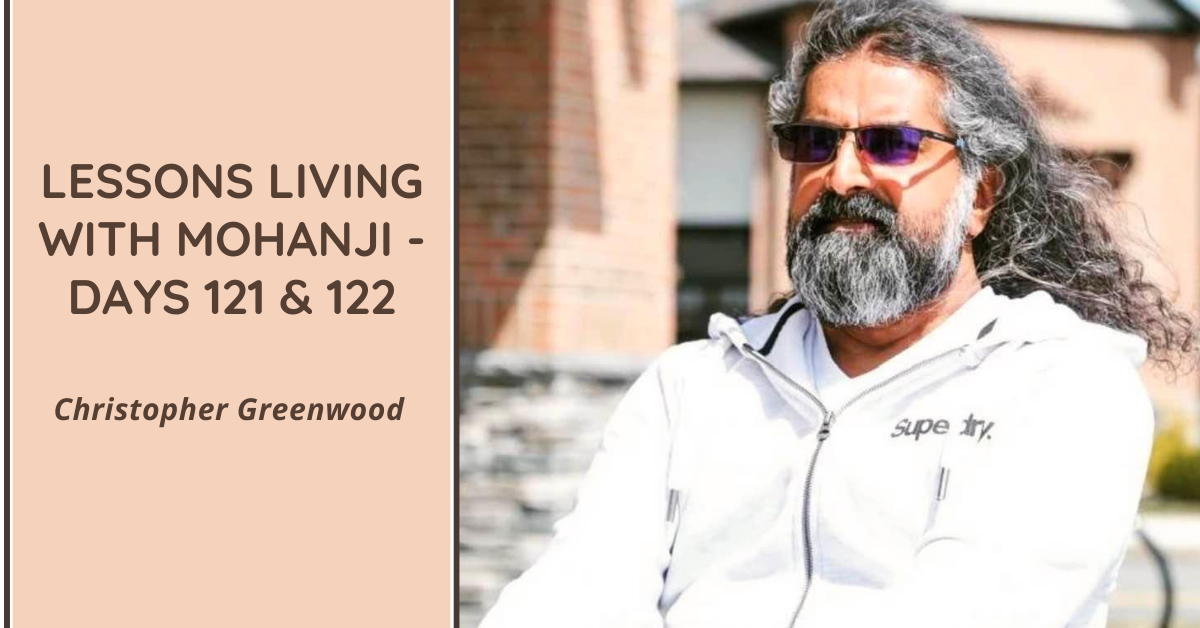by Christopher Greenwood
Day 121 Lesson – What Mohanji shares is practical in daily life
Good morning everybody. I hope that you’re doing very well.
Living with Mohanji has been a real blessing. It has also been a privilege to be able to share some of those experiences with you all through these messages. Some of the messages I’ve received in response to them have been really touching. I’m grateful for everyone who sent them and also the fact that I can serve in this way. Because I’m purely seeing myself as a conduit from what Mohanji is sharing with me in the morning or in the days here and doing my best to share this time with others, so it’s all his teachings.

Today I was thinking of that one overall lesson or observation which I can conclude from being here, and if there was one. I was thinking about it. I feel that if there is one lesson, it’s that whatever Mohanji is sharing, whatever teaching he has provided, whatever guidance he has given, it’s practical. It can be applied in our lives. Hardcore practical, in fact, and very simple as well. If we apply them, even just a few of them, they have a possibility to really positively enhance our lives. I realised more and more that the time I spend with him, everything that is given, everything that is shared, can be used to improve life.
He’s not asking anything for this, nor is he mandating someone should follow him or saying that this is the way. It’s simply given; it’s available. If it’s useful for us, then great, we can use it. But at the same time, he also accepts that maybe it’s not useful. So then that’s also okay. But it’s available at least.
In my experience, the real lesson only comes once I’ve taken steps to put some of these things into practice. Because then I experience it, and then I understand it. Then I recognise as well what actually transformed through applying it in my life, whether that’s big or small. So one major lesson for me is the constant observation and recognition that reality is happening from moment to moment. It’s now. Many people say that it’s only now, but to experience and understand that at another level is one of the learnings that’s happening for me since I’ve been here. And it’s growing; it’s evolving so that we always see reality at work.
For example, the hard reality is that we’re born and will die one day. That’s reality. And then also experiencing the more subtle realities like my mental state of mind, or mood, from one day, can suddenly change to the next. So there’s a fluctuation, which also brings that reality back to Mohanji’s teaching that we do what we can today because we can’t guarantee what comes tomorrow. This reality is happening moment to moment.
Also, the larger teaching of Mohanji, which I’m experiencing more, is that the best way to handle it is through acceptance. Because then we’re living with reality, we’re facing it. Looking back at my life, many of the pains and sufferings I had were disappointments because situations didn’t turn out the way I hoped. Or I’ve maybe been avoiding life in a way.
I realised that I read many books and because I knew these topics and filled my head with all these concepts and stuff, I thought I was settled and that that is how life is. But looking back now, it set me aside from life, almost like escapism. I recognise now that that was a huge trap, or sometimes, when I’ve happily been wallowing in self-pity, perceived injustices, resisting and suffering; this usual cycle.
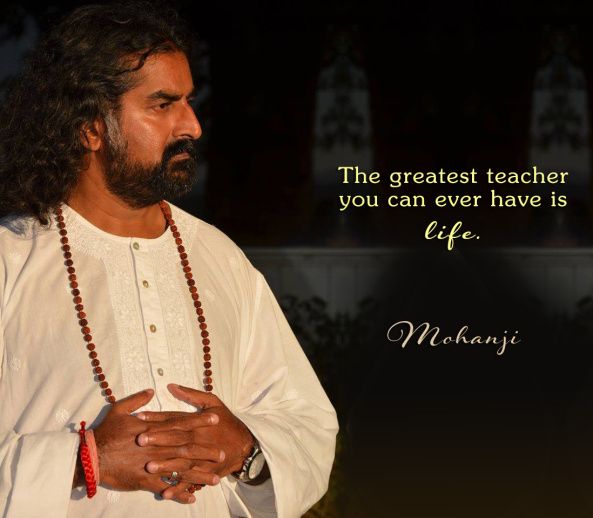
Many situations have happened, but what’s becoming more clear to me now is that there is real power in acceptance, to simply handle situations as they come. As Mohanji is, following his lead, just being cool, situations will always come. When they do, we can handle it, even at the level of thoughts.
So at one point, the word acceptance was a nice word to me. But it was a word. Now, after the actual tangible experiences of settling into a life of acceptance, I’m slowly understanding this more and recognising that this power is great. Because through acceptance, we have by-products that come, which are fearlessness, clarity, and creativity. Because I found that through acceptance, when we accept that a situation happened, then creativity can come: “Okay, what next? What do we do now?” Whereas resisting and not accepting it means that the phase doesn’t come for the creativity to emerge.
I gave a presentation for Invest in Awareness last week and got asked this question about acceptance: “How can you accept all the tragedies that come in life? How can you just say acceptance? Does that not mean you’re just giving into life?” It’s a good question. I was thinking of this, and actually, there are nuances or dimensions to acceptance, which I’m now experiencing: you don’t have to accept injustices; you can move towards them. But it’s more accepting moment-to-moment life, when difficulties come, when challenges come, accepting it, and moving on. For me experiencing this brings much more peace and stability. And it’s an ongoing journey. I can’t say I fully accept everything; there’s still resistance here and there.
The overall observation is that what Mohanji is sharing, I feel, is practical for life. There’s nothing abstract. There is no philosophy, nothing to debate, nothing to discuss or idealise. It’s practical, simple and universal teachings on how to handle life. I find that it is like a roadmap, or even a manual for human life and simply being you. This is what we’ll be bringing through the programs from the Invest in Awareness team. Do message me if you’re interested in knowing more about that because we’ll be bringing this into a good package to help share this understanding.
I hope you have a great day ahead.
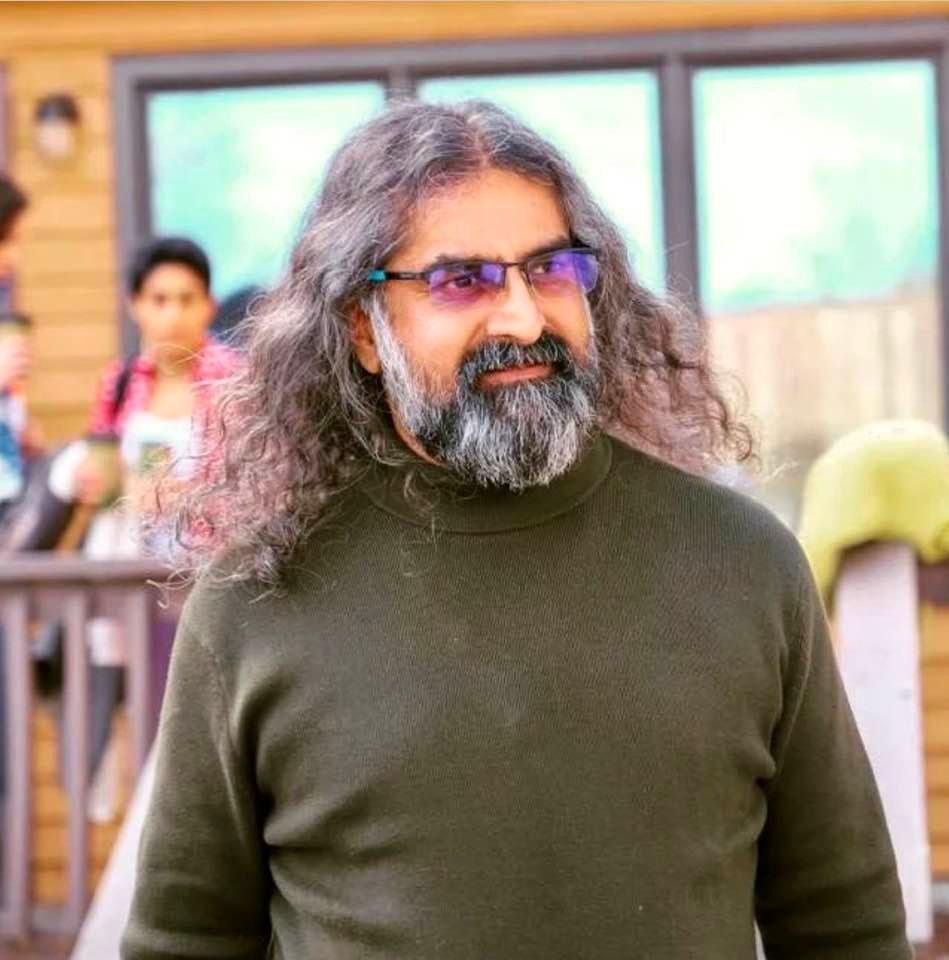
Day 122 Lesson – Signs of tamas
Good morning everybody. I hope that you’re doing very well.
Yesterday was a long day, right from morning until evening. I’ve mentioned before that many new activities are starting up. More people are coming forward to assist in what we’re doing. And actually, some are proposing that they can just take activities forward, which is fantastic. That’s what we need now; hands and people connecting to the ideas of all of these platforms.
I’ve shared the dashboard before, which has all Mohanji’s founded platforms. Now, this is quickly becoming outdated because there are also new ones that are coming forward. What I really admire about Mohanji’s vision is that he really wants all the people who are connected to him, that love him, that a part of the family that had been standing by him over these years, to be stable, to be self-sufficient, to have a good income, to have a stable job. What we’re looking at now are opportunities that we can bring forward, which unite people around a similar skill set or talent so that we can put them together and take forward ideas and initiatives.
For example, Ananth now will lead a group of people, almost like a consultancy agency, where we’ll be able to take on projects related to IT, software development, and all these types of things. Because we have really good skills within the family, many people have worked in those industries. I’ll be contributing in some way, too, as that was my background before – business consultancy, IT program project delivery.
Like this, opportunities are coming where the people can come together and work together. At the same time, Mohanji is also meeting people in various industries. Many of these people who are coming forward have the same values. They have the same sense of purpose, integrity, trustworthiness and honesty. It’s really great because it makes working so much easier when you’re all in a similar mindset. It’s also taking steps forward to bring back this ethical business where everybody has an opportunity to thrive. So I really admire that.
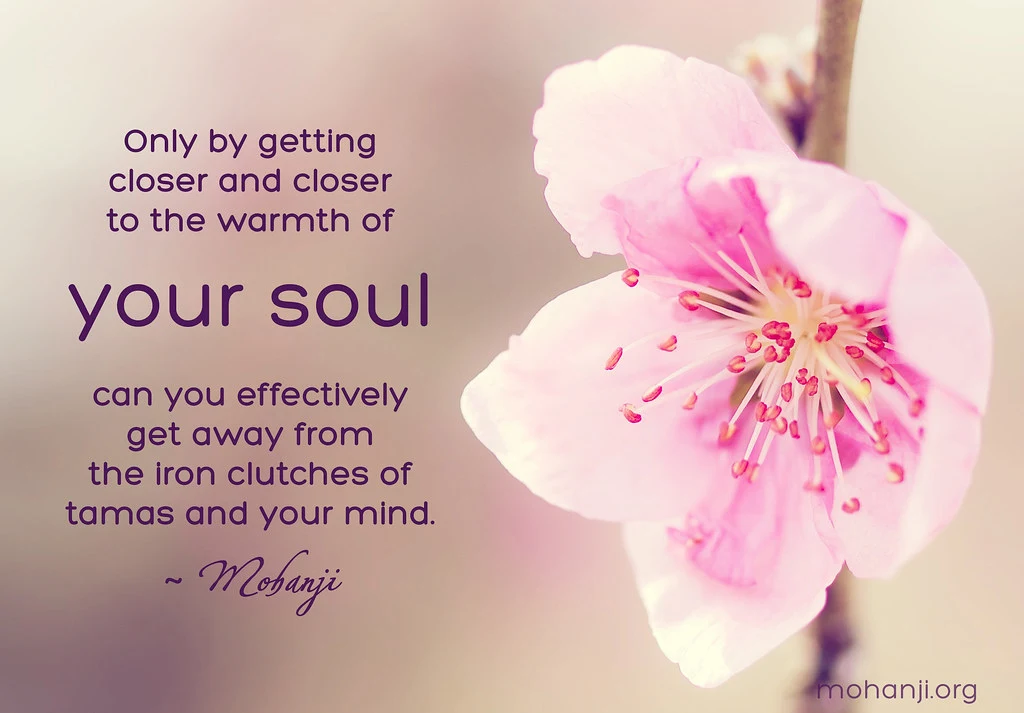
As I’ve mentioned before, Mohanji is not slowing down either. There’s no delay; there’s no postponement. He’s doing everything he can while he’s here, using the time well. In the morning, we’ll discuss something, and recently he’s been saying: “You know, actually, by my standards, I’m tamasic, I have to slow myself down. I could be doing much more.” This I find hard to believe because we will discuss maybe ten things in the morning. Then I’ll go and work on one or two activities. By the time I come back, all the rest are finished. He has spoken to who he needed to, and arrangements have been made.
As he mentioned tamas, I was just curious in conversation and asked him what are the signs then that you can expect to see to check if tamas is starting to creep in. Because, as he’s explained before, this can be very slow. It creeps in, and before you know it, you’re completely back on that bed, which is a magnet, the iron rod on your back, completely laying down, and you find it incredibly difficult to move and get up and start walking again.
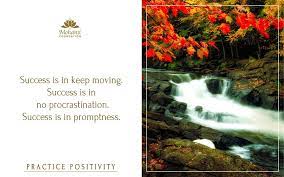
So to avoid reaching that state, I was thinking about how to be alert and aware. Because even though I’m here, there can still be fluctuations in motivation. So I take the advice shared before that when it’s possible to run, we should run, and if we need to walk, then that’s okay; we walk—depending on how we’re feeling.
I asked Mohanji what the signs to be expected are. He shared that when you’re closer to a sattva state, where you’re really moving forward, there’ll be clarity, and you’ll have productivity, purposefulness, and promptness. Then you know that you’re on a track; activities are happening. But then the opposite that we can expect when we’re falling into tamas is that there’ll be confusion, inaction, lack of purpose, delay and postponement.
For me, recognising that is definitely the first thing that comes to mind as an alarm bell anytime when I want to postpone something. As soon as that thought comes, “Okay, I’ll do that later”, or “I’ll do that tomorrow”, then I can quickly catch myself and think, “Okay, actually, can I do it now? Is it possible to do it now because if it is, I should?”
So that’s, for me, one of the signs. I hope you have a great day ahead and will speak to you soon.
I hope you have a great day and will speak to you soon.
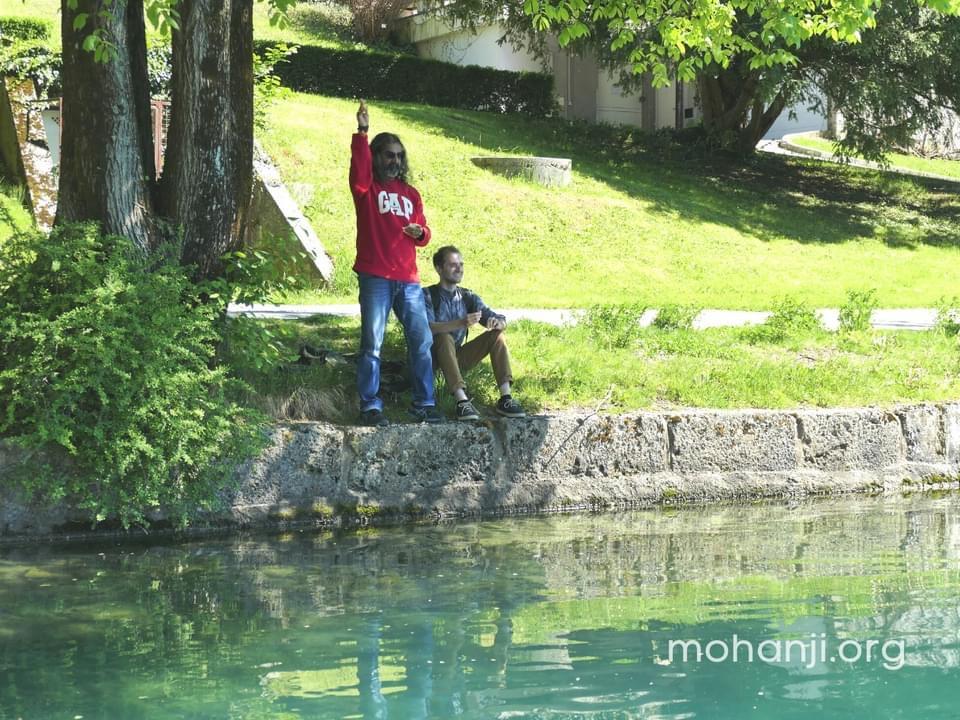
|| JAI BRAHMARISHI MOHANJI ||
Edited & Published by – Testimonials Team, 24th April 2022
Disclaimer:
The views, opinions, and positions expressed by the authors and those providing comments on these blogs are theirs alone and do not necessarily reflect the views, opinions or positions of Mohanji, Mohanji Foundation, it’s members, employees or any other individual or entity associated with Mohanji or Mohanji Foundation. We make no representations as to accuracy, completeness, timeliness, suitability or validity of any information presented by individual authors and/or commenters on our blogs and will not be liable for any errors, omissions, or delays in this information or any losses, injuries or damages arising from its display or use.
We reserve the right to delete, edit, or alter in any manner we see fit blog entries or comments that we, in our sole discretion, deem to be obscene, offensive, defamatory, threatening, in violation of trademark, copyright or other laws, of an express commercial nature, or otherwise unacceptable.
Mohanji Testimonials team


